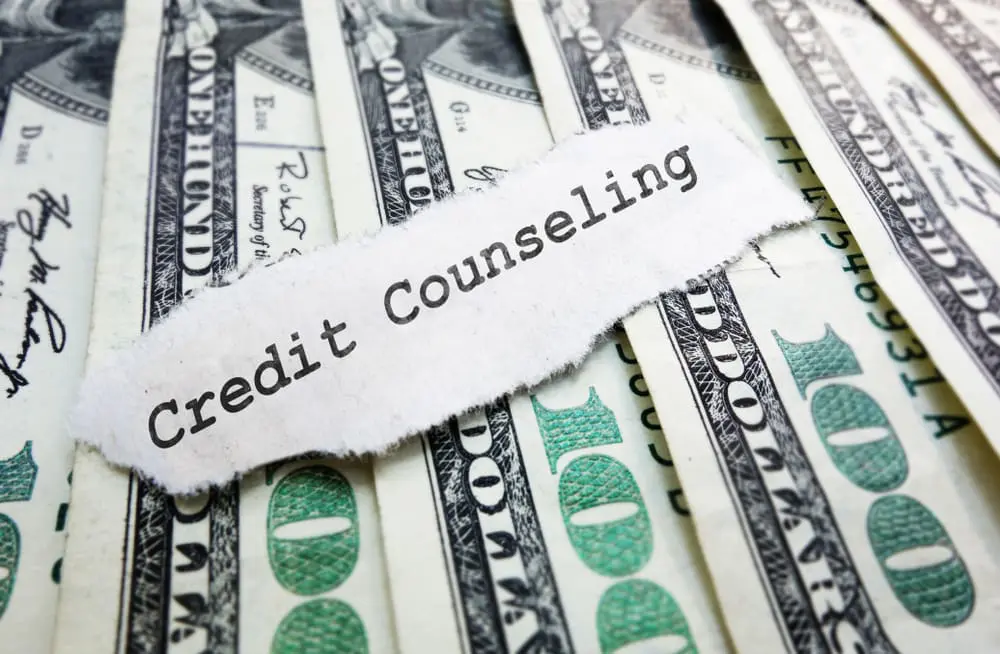How Millennials Can Achieve Financial Freedom: Seek Guidance from Professionals. Find Out More In Our Latest Article!
THIS ARTICLE MAY CONTAIN AFFILIATE LINKS, MEANING I GET A COMMISSION IF YOU DECIDE TO MAKE A PURCHASE THROUGH MY LINKS AT NO COST TO YOU. PLEASE READ MY AFFILIATE DISCLOSURE FOR MORE INFO.
DON’T HAVE TIME TO READ THE FULL ARTICLE. HERE’S WHAT YOU ARE MISSING.
Millennial Credit Advisers blog has seen firsthand the challenges millennials face when managing their finances. Many young adults struggle with debt, whether from student loans, credit cards, or other sources.
Navigating the world of personal finance can be overwhelming, but some practical solutions and strategies can help.
I will answer some of millennials’ most common debt-related questions in this article.
From understanding debt dynamics to building a sustainable financial future, I will offer practical advice and solutions to help you control your finances and achieve your goals.
Whether you’re just starting your financial journey or have been struggling with debt for years, hope and help are available.
Understanding Debt Dynamics
All credit management professionals understand that millennials face various debt challenges. In this section, I will discuss the types of debt they face and the common causes of millennial debt.
Types of Debt Millennials Face

Millennials often have various types of debt, including student loans, credit card debt, and personal loans. Student loans are among the most significant sources of debt for millennials.
Credello states student loans are often considered “good debt” because they can lead to higher-paying jobs and better career prospects.
However, student loans can also be a significant burden, particularly for those who struggle to find work after graduation.
Credit card debt is another common type of debt that many millennials face. According to a report by CNBC, the average credit card debt for millennials is $4,712. Credit card debt can be challenging to manage, mainly when high interest rates are involved.
Personal loans are another type of debt that millennials may face. They can be used for various purposes, including debt consolidation, home improvements, and medical expenses.
However, they can also be a significant financial burden, particularly if they have high interest rates.
Common Causes of Millennial Debt
Millennials face various challenges that can lead to debt, including student loans, low-paying jobs, and high living expenses.
According to a Business Insider report, millennials face a debt crisis due to a combination of factors, including rising student loan debt, stagnant wages, and high housing costs.
One of the most significant causes of millennial debt is student loans. Many millennials struggle to repay their student loans, leading to financial difficulties and debt.
Another common cause of millennial debt is low-paying jobs. Many millennials work jobs that do not pay enough to cover their living expenses, which can lead to debt.
Finally, high living expenses are another common cause of millennial debt. Many millennials need help to afford basic living expenses such as rent, food, and transportation.
These high living expenses can lead to debt, mainly if millennials use credit cards or personal loans to cover their expenses.
Understanding the types of debt that millennials face and the common causes of millennial debt is essential for developing effective debt management strategies.
As a debt management professional, I can provide practical advice and solutions to help millennials manage their debt and achieve financial stability.
Strategies for Debt Management

Credit management professionals recommend a few steps for those struggling with debt. Here are some practical strategies for managing debt effectively.
Budgeting for Debt Repayment
The first step in managing your debt is to create a budget. A budget will help you understand your income and expenses and identify areas where you can cut back on expenses to free up money for debt repayment.
Start by listing all your sources of income and expenses, including rent, utilities, groceries, transportation, and entertainment. Then, prioritize your expenses and cut back on non-essential expenses.
Budgeting apps or spreadsheets can help you track your expenses and stay on track with your debt repayment plan.
Prioritizing Debts
When you have multiple debts, it’s important to prioritize them based on interest rates and payment terms.
First, focus on paying off high-interest debts, such as credit card debts, as they can accumulate quickly and make it harder to pay off your debt in the long run.
To manage your debt more efficiently, consider consolidating your debts into a single loan with a lower interest rate.
Negotiating with Creditors
If you struggle to make debt payments, you can negotiate with creditors to lower your interest rates or payment terms. Many creditors will work with you to find a solution for both parties.
Consider working with a debt management company to negotiate with your creditors on your behalf and create a debt management plan that fits your budget.
By following these strategies, you can take control of your debt and work towards a debt-free future.
Remember, managing your debt takes time and effort, but with the right strategies, you can achieve your financial goals and live a debt-free life.
Debt Consolidation Explained
Debt consolidation is a financial tool that can help individuals manage their debt more effectively. It involves combining multiple debts into a single loan with a lower interest rate, making it easier to pay off debt over time.
There are several ways to consolidate debt, including taking out a personal loan, transferring balances to a credit card with a lower interest rate, or using a home equity loan or line of credit.
One benefit of debt consolidation is that it simplifies debt repayment. Instead of keeping track of multiple payments and due dates, individuals can make a single monthly payment toward their consolidated debt.
However, it’s important to note that debt consolidation is not a magic solution to debt problems. While it can be helpful in certain situations, everyone has better options.
Before considering debt consolidation, you must evaluate your options and understand the loan terms and conditions. Additionally, it’s essential to address the root cause of the debt and change your spending habits to avoid falling back into debt in the future.
Overall, debt consolidation can be a valuable tool for managing debt. Still, it’s essential to approach it cautiously and ensure it’s the right choice for your financial situation.
Credit Counseling and How It Helps

Debt management professionals often recommend credit counseling to millennials struggling with debt. Credit counseling is a service that helps consumers manage their debt by providing education, advice, and resources. It’s designed to help consumers avoid bankruptcy and escape living paycheck-to-paycheck.
Credit counselors advise on budgeting, managing money, and other finance basics. They assist people who need help approaching creditors and developing plans to pay off their debts. Credit counselors can also help you negotiate with creditors to reduce interest rates or waive fees.
One of the main benefits of credit counseling is that it can help you develop a debt management plan (DMP). A DMP is a personalized plan outlining how to pay off your debts over time. It can include reducing interest rates, lowering your monthly payment, or consolidating your debts into one monthly payment.
Another benefit of credit counseling is that it can help you avoid bankruptcy. If you’re struggling with debt, bankruptcy is the only option. However, credit counseling can help you explore other options and develop a plan to pay off your debts without filing for bankruptcy.
Credit counseling is a valuable resource for millennials struggling with debt. It can help you develop a personalized debt management plan, negotiate with creditors, and avoid bankruptcy. If you’re struggling with debt, consider contacting a credit counseling agency.
Debt Settlement Versus Bankruptcy

When dealing with debt, two options often arise debt settlement and bankruptcy. Here’s a breakdown of the pros and cons of each:
Debt Settlement
Debt settlement is a process where you negotiate with your creditors to pay them a lump sum less than the total amount you owe. You can do this on your own or through a debt settlement company.
Pros:
- You can potentially settle your debt for less than what you owe.
- You may be able to avoid bankruptcy and its associated consequences.
- You may be able to negotiate a payment plan that is more manageable for you.
Cons:
- Debt settlement can negatively impact your credit score.
- There is no guarantee that your creditors will agree to settle.
- You may be required to pay taxes on the amount of forgiven debt.
Bankruptcy
Bankruptcy is a legal process that can help you eliminate or restructure your debt. There are two main types of bankruptcy for individuals: Chapter 7 and Chapter 13.
Pros:
- You can eliminate most or all of your debt.
- You can get a fresh start financially.
- You can stop creditor harassment and wage garnishments.
Cons:
- Bankruptcy can negatively impact your credit score for up to 10 years.
- You may be required to sell some of your assets to pay off your debt.
- Bankruptcy can be a complex and costly process.
Ultimately, your decision to pursue debt settlement or bankruptcy will depend on your circumstances. It’s essential to weigh the pros and cons of each option and consult with a debt management professional to determine the best course of action.
Building a Sustainable Financial Future

Debt management experts know how important building a sustainable financial future is. This section will share practical advice and solutions for millennials struggling with debt.
Creating an Emergency Fund
Creating an emergency fund is one of the first steps toward building a sustainable financial future. This fund covers unexpected expenses such as car repairs, medical bills, or job loss. It is best to save at least three to six months of living expenses in your emergency fund.
To create your emergency fund, set a savings goal and make a budget. Find ways to reduce expenses and redirect that money toward your emergency fund. You can also automate your savings by setting up a direct deposit from your paycheck into your emergency fund.
Smart Saving Tips
In addition to creating an emergency fund, several smart saving tips can help you build a sustainable financial future. Here are a few to consider:
- Track your spending: Start by tracking your spending for a month or two. This will help you identify areas where you can cut back on expenses and redirect that money toward savings or debt repayment.
- Set savings goals: Whether you’re saving for a down payment on a house or a vacation, setting savings goals can help you stay motivated and on track.
- Automate your savings: Set up automatic monthly transfers from your checking account to your savings account. This will help you save money without even thinking about it.
- Take advantage of employer benefits: If your employer offers a 401(k) or other retirement plan, take advantage of it. This is a great way to save for the future while taking advantage of potential tax benefits.
Following these tips and creating a financial plan can help you build a sustainable financial future and achieve your goals.
Navigating Student Loans and Repayment Options

Debt management professionals help many millennials navigate their student loans and repayment options. Here are some practical tips for those struggling with student loan debt.
1. Know Your Loan Types
It is essential to know the types of student loans you have. There are two main types of student loans: federal and private. The government funds federal loans, while banks and other financial institutions fund private loans. Each loan type has its repayment options, interest rates, and terms.
2. Explore Repayment Options
Federal student loans offer several repayment options, including the Income-Based Repayment (IBR) plan, the Pay As You Earn (PAYE) plan, and the Revised Pay As You Earn (REPAYE) plan. These plans allow you to adjust your monthly payments based on income and family size. Private student loans may also offer repayment options, so contacting your lender to explore your options is essential.
3. Consider Consolidation
Consolidating your student loans can simplify repayment by combining multiple loans into one loan with one monthly payment. This could also lower your interest rate and monthly payment. However, it is essential to weigh consolidation’s pros and cons before deciding.
4. Seek Professional Help
If you are struggling with your student loan debt, consider seeking professional help from a debt management professional. They can help you explore your options and create a plan to manage your debt.
Student loan debt can be overwhelming, but options are available to help you manage it. By understanding your loan types, exploring repayment options, considering consolidation, and seeking professional help, you can take control of your student loan debt and work towards a debt-free future.
Professional Resources and When to Seek Help

Millennials understand that managing debt can be overwhelming and stressful, especially for those just starting their careers. Knowing when to seek help and what resources are available to you is essential.
First and foremost, educating yourself on personal finance and debt management is essential. Many online resources, such as Ramsey Solutions and Forbes Advisor, offer valuable information and tools to help you manage your debt effectively.
If you struggle to manage your debt, it may be time to seek professional help. Credit counseling services, such as InCharge Debt Solutions, can provide a debt management plan and help you negotiate with creditors to lower your interest rates and monthly payments.
Another option is debt consolidation, which combines all your debts into one loan with a lower interest rate. This can make managing your debt more accessible and lower your monthly payments. However, it is essential to research and ensure you are working with a reputable lender.
Finally, consider debt settlement if you struggle to make your monthly payments. This involves negotiating with creditors to settle your debts for less than what you owe. However, debt settlement can negatively impact your credit score, so it should only be considered a last resort.
Remember, many resources are available to help you manage your debt and achieve financial freedom. Don’t be afraid to seek help and take control of your finances today.
Frequently Asked Questions
What are the primary types of debt burdening millennials today?
Today, millennials are burdened by student loans, credit card debt, and personal loans. Student loans are the most significant source of debt for millennials, with the average student loan debt being around $30,000. Credit card debt is also a significant source of debt for millennials, with the average credit card debt being around $6,000.
Why are millennials facing significant financial challenges?
There are several reasons why millennials are facing significant financial challenges. One of the main reasons is the rising cost of living, including housing, healthcare, and education. Additionally, many millennials need help with low-paying jobs and high levels of unemployment. The pandemic has also significantly impacted millennials’ finances, with many losing their jobs or experiencing reduced hours.
How do millennial attitudes towards debt differ from previous generations?
Millennials tend to have a more relaxed attitude towards debt than previous generations. Many millennials consider debt a necessary evil and are more comfortable taking on debt to achieve their goals. Additionally, many millennials are more willing to take on debt for experiences such as travel or entertainment.
Are high levels of debt significantly impacting millennials’ financial stability?
Yes, high levels of debt are significantly impacting millennials’ financial stability. Debt can be a significant source of stress and can prevent millennials from achieving their financial goals, such as buying a home or starting a business. Additionally, high levels of debt can impact millennials’ credit scores, making it more difficult for them to access credit in the future.
What strategies can millennials employ to manage and reduce their debt effectively?
Millennials can employ several strategies to manage and reduce their debt effectively. These include creating a budget, prioritizing debt payments, negotiating with creditors, and seeking professional debt management advice. Additionally, millennials can consider debt consolidation or refinancing to lower their interest rates and make their debt more manageable.
What are some long-term financial planning tips for millennials to avoid accruing excessive debt?
Some long-term financial planning tips for millennials to avoid excessive debt include creating a savings plan, setting financial goals, and investing in their education and career. Additionally, millennials should consider living below their means, avoiding unnecessary expenses, and seeking financial education resources to help them make informed financial decisions.
Disclaimer: Millennial Credit Advisers is not a licensed credit service provider or financial advisor. We don’t offer credit repair, debt management, or legal services. Educate yourself on saving, reducing debt, and managing credit for economic improvement. Understand credit reports, scores, and financial products. Consult a financial advisor for personalized advice. Track your progress for a better credit journey.
Written content: Please view our full AI Use Disclosure.
We improve our products and advertising by using Microsoft Clarity to see how you use our website. By using our site, you agree that we and Microsoft can collect and use this data. Our privacy policy has more details.
















